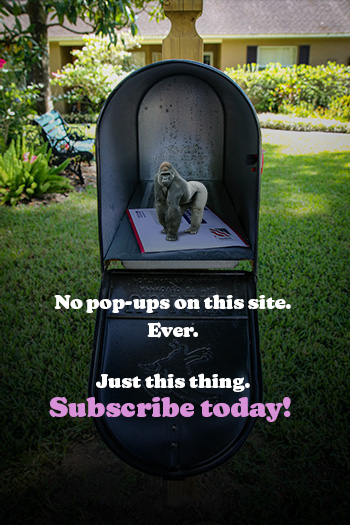New Year, Probably Same You
Why resolutions fail so often and what we can do to fix it
It’s the season of New Years resolutions, which means we’re quickly approaching the season of shaming ourselves for failing our New Years resolutions. By February 36% of all resolutions will be toasted. By the time we’re ready to usher in 2024, only 9% of us will have succeeded.
I always hated New Years resolutions. They were for people too afraid to change themselves during the other 11 months. Truth is, I hated New Years resolutions because I never succeeded at them and they always made me feel weak. It’s far easier to blanket the entire exercise with negativity than it is to have a vulnerable moment and admit you’re afraid. Of course the inspirational rush of imagining a new me was thrilling, but the ensuing crush of realizing I wasn’t new at all was defeating.
It wasn’t until I began to dig into the world of habit psychology that I realized my failures weren’t indicative of a lack of will, intelligence, or follow-through. They were indicative of a lack of understanding around not only how habits and people work.
Respect the power of the habit
The current state of self-help is doing us very few favours. Humans don’t want to be told that the solution to their problems requires time and effort, we want the answers to be bite-sized appetizers of wisdom, 250 characters or fewer if possible. In response, the self-help industry is giving us exactly what we’ve asked of it: over-simplified advice void of context or appreciation for the jumbled mess of skin, bone, and issues that we are.
This flippant attitude sells books and generates clicks, but it can also do damage when it leaves us feeling like the architects of our own failure. A critical first step in solving any problem is understanding it, and from where I’m sitting, we haven’t done a great job of understanding this one.
To say building a new habit is basic and simple is to disrespect the power of the habit. They’re not all built the same. Some are just missteps that got us into a bit of a groove, while others are trenches dug so deep and early in our lives, we don’t even realize we’re in them.
Hit yourself with a hammer 60 times
I was once discussing with a buddy about how I dislike the gym. His solution was to just have me go a bunch. “Do anything 60 times and it becomes a habit”. Once in a discussion about weight loss, a woman told me to “just eat a bunch of seeds”. That is a thing that another human looked at me with conviction and said.
People who inherently enjoy the thing they’re doing love to give this type of advice. It’s always some impossibly simple set of steps that they conveniently enjoy doing in the first place.
Hitting yourself with a hammer 60 times will not allow you to suddenly enjoy the 61st strike. This is not a controversial statement to make, and yet all month people will continue to drag themselves to the gym and subject themselves to punishing workouts that they can’t stand. If you love difficult workouts, that’s fantastic, but we mustn’t deny that for many, they’re just hammer strikes.
Doing a thing you don’t enjoy does not flip the switch. That’s stubborn bull-headed thinking and yet it’s the path most of us take. A lot of us are simply running around all January, clocking ourselves with hammers and then hating ourselves come February when we quit.
The recipe: Cue, Routine, Reward
When you ask somebody to list their habits, most people will gravitate to one or two things that stand out to them. Cereal before bed, social media before work, consuming ice cream directly from a carton as soon as their mom calls. Regular stuff.
What might be lacking is the realization that habits run most of our behaviours, we’re just not paying them much attention. They are after all, running automatically in the background. So what’s governing all these habits? The cue, the routine, and the reward.
Pain is a natural part of human living. Think of our habits as a computer function used to alleviate this pain. When we feel the pain, the mind runs the code and you do the thing. It might be physical pain such as a sore back, emotional pain such as insecurity, or psychological pain such as boredom. Whatever your sickness, you’ve got the cure.
Feeling the pain (the cue), makes you run the code and you do the thing (the routine), and your pain is alleviated (reward). Hopefully the routine and the reward are helpful, healthy, and in-line with your desired way of being. Maybe the code you run when you’re feeling down is to go for a run. That there’s a good habit. Maybe it’s to get drunk. That’s the other kind of habit, and sometimes it ends poorly.
Technically, the solution to work through this problem is straight forward: we must identify all 3 factors to understand why we do what we do. Realistically this solution is trickier than we might realize for one annoying reason: humans are awful at self-assessment. We’re great at coming up with solutions when we understand them, but unfortunately a lot of the time we don’t.
That’s ok though, because we have a system to help us work through this. We’ll develop it with help from from Charles Duhigg and his damn fine book on habits: The Power of Habit: Why We Do What We Do in Life and Business.
A real life example
Let’s make up a scenario that is in no way what I do every single goddamn night. 8:30 pm hits and you eat a bowl (fine, bowls) of cereal. Delicious, sugary, low-in-fibre-and-everything-else, processed cereal. We do it because it’s delicious.
Right?
Step 1: Identify the routine
This one is simple because the routine is merely the activity of doing the thing. It’s a bit more involved than “I go get cereal”. We identify the entire routine. The kids go to bed. The partner joins you on the couch. The TV goes on. You become mildly tired. You go get the cereal. You chat about your day with your partner. You go to bed. You toss and turn because you just mainlined a tablespoon of sugar at 9:30pm. Promise yourself you’ll change. Fall asleep. Forget the promise.

Step 2: Experiment with rewards
It’s time to dig into the depths of our soul. Pay no mind to the scary stuff. It’s going to be alright. This is about cereal. We’ll deal with the other stuff later. It’s going to be ok.
So when it comes to the cereal, I do it because it’s delicious. Is that true? This is a reasonable question to keep in the back of your mind all the time, because as stated several times already, humans are cat piss at understanding their true motivations.
In this process we’re going to become scientists and test all manner of outcomes on ourselves. Like all excellent scientists we will act with patience and without emotion. Our reward is truth, after all. The process may take weeks or even longer. There will be no expectation of change during this stage, nor will we be hurtful towards ourselves. This is a fact-finding mission.
We assume we eat the cereal because it’s delicious. What else might it be?
- Perhaps we’re hungry
- Perhaps we’re bored
- Perhaps we’re craving personal connection
- Perhaps we’re tired but don’t want to sleep
- Perhaps we need to move our bodies
All of these things are a form of pain in one way or another. The cereal is merely a solution to that pain. Any of these things could be true, and we’re going to test them all. One night we’ll do something more engaging than watch a show, one night we’ll chat more with our spouse. Perhaps the next we’ll eat a more filling food that’s high in protein. Next we’ll try going to bed instead of trying to stay up. Next we’ll go for a walk around the block.
To gain the advantage we need, we’ll have to use a journal. We’ll quickly be gathering results and we may need to look back on them once we have a bigger picture. Our self-assessments will always be a little off, due to our pre-existing biases or even how we feel that day. The journal will give us a more clear understanding of what’s going on.
So we employ the replacement reward, wait 15 minutes, and mark down if anything has changed. For example, if we get up and walk around the block at 8:15, and by 8:30 we still want cereal, clearly the issue wasn’t that our body needed to move around. This can become exciting if you figure out what your mind or body is truly after. What if you find that chatting with your partner isn’t wholly satisfying? Perhaps you aren’t in need of cereal, you were just getting bored?
Pay attention to what happens next
As you journal, don’t stop at merely noting the immediate impact. Expand your findings across your entire day or week. Does the not-full-of-fruit-loops stomach help you rest better? Do you wake up more refreshed? Are you proud of yourself for accomplishing a thing? Did you mysteriously nail your morning to-do lists all week? Are you generally happier? This is the critical noticing that we suck at, hence the journal.
Little things turn into big things. This is one of those stupidly obvious things that most of us ignore despite fully understanding. It also goes in all directions. Just as skipping the single bowl of cereal can cascade into having an overly productive day at work, adding the cereal can easily topple into an unwanted sleep-in, hitting traffic, missing a meeting, disappointing your coworkers, and initiating a shame spiral that results in–you guessed it–delicious guilt cereal.
Summary
You’ve now taken the first steps to changing your behaviour: you’ve begun identifying why you do it in the first place. Only once you understand the problem can you enact a proper plan to address it.
Start by acknowledging that behaviour change is a big deal, and anybody who tells you otherwise is probably focusing on things they’re already good at, or trying to sell you something.
Then you can break down the behaviours you want to eliminate or add, experimenting with different scenarios to help you understand why you do what you do. Use a journal to track progress and keep yourself aware of what’s working and what isn’t.
Once you do those things, you’re at least on a better path to change. Will it work? Can’t say for certain. As mentioned, change is a big deal. At the very least you’ll be giving yourself a better shot at it.




